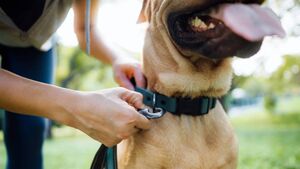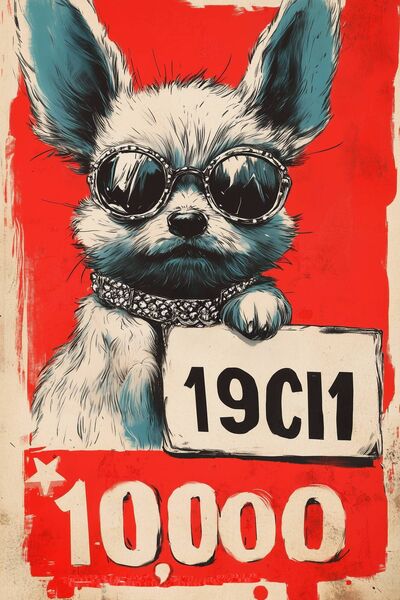It's a costly business being a 'pet parent'

There was a time not so long ago when the family dog slept in the yard, the cat prowled the hedgerows for mice, and neither would have known what to do with a birthday cake shaped like a bone. A poorly animal might get a pat on the head and, if things looked particularly grim, a tearful visit to the local vet who would peer sympathetically over half-moon spectacles before delivering the inevitable verdict with a regretful sigh. The dog would be "put to sleep" with the solemn promise that he "wouldn't feel a thing". Cat owners often didn't even get that far; felines, being the independent sort, would simply wander off one day, sparing us the indignity of choosing their ending.
How thoroughly provincial we were.
In Dublin today, Michael John Winters of Fox Veterinary Clinic finds himself conducting delicate negotiations with pet owners that have nothing to do with medicine and everything to do with money.
"It's a very tricky balancing act," he told the , detailing how pet owners look at him with expressions that would make a banker blush when he outlines the actual cost of keeping Fluffy alive.
Meanwhile, across the Atlantic at the University of Georgia's Veterinary Teaching Hospital, a cat named Strawberry (yes, Strawberry) lies on her back, paws akimbo, belly shaved and stitched after receiving a kidney transplant costing roughly the price of a decent second-hand Audi. The donor kidney came from a young tabby destined for laboratory life, now rescued and adopted by the same owner as part of the deal. It's a curious transaction - one kidney in exchange for a lifetime of chin scratches and premium food that costs more per gram than beluga caviar.
The medicalisation of pet care is arriving on our shores with the inevitability of American fast foods and those monstrous cinema popcorn containers that seem to require both hands and a permit to carry. And it's bringing American-sized bills with it.
We Irish have always kept animals, but in a practical, unsentimental fashion born of a country where sentimentality was a luxury few could afford. The idea of spending what might be a month's income on a dog's dental work would have seemed not just peculiar but morally suspect to previous generations, like heating the outdoors or putting perfume on a pig.
My family owned two dogs. One was our plucky Cairn terrier recently deceased, bearing stoically with a lymphoma, held at bay by steroids, before succumbing to the inevitable with minimal fuss. Our remaining canine, a doe-eyed King Charles, developed a hernia that merited inclusion in the Guinness Book of Records. At half a week's wage, we considered the price tag acceptable, restored as she is to my lap while I drink my morning coffee and now bedded securely at my side as I commit her surgical history to paper.
Yet here we are in 2025, where the DSPCA's Gillian Bird reports people are "tightening their belts when it comes to additional pets" while simultaneously seeing an increase in neglect cases because owners are terrified of vet bills. The emotional calculus has changed, but the financial one remains brutally straightforward: veterinary care now costs more than human care in some instances, at least if you're the sort with a medical card.
The accommodation crisis means many Irish renters face 'No Pets Allowed' policies - a peculiar form of heartbreak that involves choosing between a roof over your head or the companionship of a creature that thinks you're essentially a god with opposable thumbs and a tin opener.
What do the ever-rising costs of pet care buy? A great deal more than in our parents' time. Today's veterinary medicine includes MRIs, laparoscopic surgeries, oncology consultations, and drugs with names that sound like rejected IKEA furniture. The modern vet clinic resembles a private hospital with better magazines and more hair on the floor. The gap between human and animal medicine narrows by the day, though thankfully the animals aren't yet required to fill out their own insurance forms.
This evolution mirrors the peculiar trajectory of pet-keeping itself. As chronicled by James Serpell, pet-keeping in the English-speaking world traces back to medieval Britain, when lapdogs became fashionable among noble ladies. For everyone else, domesticated animals still served a utilitarian purpose: oxen plowed, pigs became meat, cats caught mice. The lap dogs were too small, too useless for any work, but ladies liked to pamper them. In the 16th century, Mary Queen of Scots had a coterie of tiny dogs that she dressed in blue velvet suits- a Tudor version of the modern Instagram influencer with a Pomeranian in a Burberry raincoat.

In America, where healthcare anxiety is practically the national sport (they've even given it medals and a scoreboard called 'medical debt'), pet owners face dilemmas that make our problems seem quaint. Kidney transplants for cats are performed at three universities. The surgery costs roughly the deposit for a modest house outside Dublin, which rather puts perspective on whether one should splurge on the premium worming tablets.
The owners who choose this path rarely fit the caricature of wealthy eccentrics. One American graduate student managed to get her cat's transplant covered mostly by pet insurance after what she called "a heroic bureaucratic effort" - a phrase that deserves its own spot in the dictionary of modern oxymorons. She reflected on the irony that her cat received better medical care than many humans, including her own family members who couldn't access similar treatments.
"It is the most bourgeois bullshit [that] I was able to get a kidney transplant for my cat," she said, "and one of my family members passed because he couldn't get a transplant."
There's an entire doctoral thesis on American healthcare inequality packed into that single sentence.
Melena McClure, a veterinarian who got a kidney transplant for her cat, described the aftermath with clinical precision.
"I swear he had diarrhoea for four months straight."
The cat eventually recovered but required immunosuppressant drugs twice daily for life.
"I have to be there every 12 hours," she said, "or else he dies."
It's a level of commitment that makes one wonder if modern pets have become hostages to our love, medicalised to the point where their survival depends on a pharmaceutical regimen that would challenge a hospice nurse.
The Americanised language itself has evolved with a Darwinian efficiency. We no longer have pet owners; we have 'pet parents'. Rover's 'True Cost of Pet Parenthood Report' reads like an ESRI publication about raising children, minus the section on university fees. We've anthropomorphised our animals to the point where they have birthday parties, Instagram accounts, and healthcare costs that would make a TD swoon.
There's something revealing in our willingness to spend so lavishly on creatures that cannot understand financial sacrifice. Perhaps it's that pets provide what one psychologist calls "the type of unconditional adoring relationship that has eluded them" (and indeed most of us) when other human beings are involved.
In an Ireland where housing is scarce, domestic finances are precarious, and human connection increasingly mediated through screens, the simple affection of a dog or cat becomes priceless. Or, more accurately, increasingly price-tagged with alarming precision.
As Ireland continues to evolve from a nation of practical animal keepers to a society of devoted pet parents, we face the same ethical quandaries that have plagued American pet care for years. We whisper reassurances to ourselves that some things - like the steady breathing of a sleeping cat or the exuberant greeting of a dog at day's end - simply cannot have a price tag.
Even as we reach for the credit card anyway.





